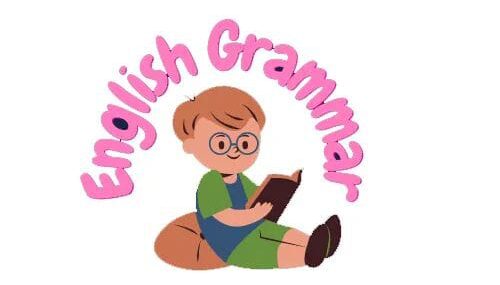Change the number in English: Noun and the Number
Singular and plural nouns
Rules – Change the number in English
- ‘S’ is used at the end of a noun to make it into plural form
Boy – boys, car- cars, horse- horses
Studios, videos, ratios, bamboos, cuckoos, cliffs, dwarfs, proofs, mischiefs, beliefs, cafes
f/fe is at the end of a noun, add –ve/ves
wife – wives, knife – knives, hoof – hooves/hoofs
- Some nouns end with ‘y’, but consonant should be there before ‘y’, add – ies
Fly – flies
Babies, stories, cities, ladies, nurseries
- if the vowel is used before ‘y’ at the end of the noun
Monkey – monkeys
Keys, boys, days, rays
- If a noun ends with ch/sh/x/o/ss/s/z add –es at the end of a noun
Tomatoes, mangoes, Negroes, benches, watches, quizzes, taxes, boxes
Except: stomachs, pianos, solos, kilos, photos, commandos etc.
- Some nouns are used in singular and plural forms without ‘s.’
Change the number in English
| Singular noun | Plural noun |
| Child | Children |
| Tooth | Teeth |
| Foot | Feet |
| Man | Men |
| Woman | Women |
| Ox | Oxen |
| Datum | Data |
| Mouse | Mice |
| Louse | Lice |
| Goose | Geese |
| Memorandum | Memoranda |
| Erratum | Errata |
| Thesis | Theses |
| Media | Medium |
| Oases | Oases |
| Index | Indices/indexes |
| Synopsis | Synopses |
| Maximum | Maxima |
| Minimum | Minima |
| Formula | Formulae/formulas |
| Phenomenon | Phenomena |
| Syllabus | Syllabi/syllabuses |
| Stadium | Stadia |
| Agendum | Agenda |
| Criterion | Criteria |
| Focus | Foci/focuses |
| Axis | axes |
| Bacterium | bacteria |
| Bandit | Banditti/bandits |
Change the number in English
Some nouns are used in singular and plural form without changing a word: Change the number in English
Deer – deer
Sheep – sheep
Offspring – offspring
Fish – fish (if varieties of fish are mentioned, we can say fishes)
A deer is running in the forest.
Deer are grazing grass now.
A sheep is sitting there.
Sheep are walking in the fields.
Thousands of fish were sold in the market today.
The varieties of fishes were bought there.
- Collective nouns
It describes a group of people or things that work as a single unit.
Verb agreement rules with collective nouns
- Plural verbs are used with some collective nouns
Cattle, children, folk, gentry, People, peasantry, poultry
Children are playing in the park.
Cattle are walking around the field.
The folk nearby us are happy to see our performance.
People have become selfish.
People from all over the countries should maintain the social distance against the novel coronavirus covid 19. (‘peoples’ is used when we talk about all people of the world)
- Mostly, collective nouns are used with the singular verb to express the whole as a group. However, plural verbs are used with collective nouns when it describes the separations as a group member.
People: Committee, ministry, family, audience, crowd, mob, board, team, panel, police, jury, staff, gang, troop, band, council, horde, troupe, tribe, union, batch, assembly, army
Animals: herd, flock, swarm
Things: chain, volley, fleet, heap, pack
Examples:
My family was agreed.
Family members were not agreed.
The jury was unanimous.
The fleet was moving together.
The fleet were moving in every direction.
The police was running after the thief.
The police were patrolling all over the routes.
The staff agrees on this new rule.
The staff disagree on this matter.
The jury were divided on its verdict.
The committee are divided on this agreement.
Army works on the ground.
- Some nouns are comprised of two parts are used with a plural verb such as articles of dress, instruments
- Dresses:
Jeans, knickers, trousers, pants, pajamas, breeches, shorts, briefs, underpants, socks, shoes,
- Instruments:
Sunglasses, goggles, spectacles, tongs, pincers, binoculars, scissors, bellows, shears, scales, tools, glasses, dividers,
- Some of the nouns end with ‘s’ and are used with plural verbs
Arrears, assets, alms, auspices, archives, amends, annals, ashes, belongings, customs, contents, credentials, congratulations, cards, earnings, embers, funds, orders, outskirts, proceeds, riches, regards, remains, surroundings, savings, upstairs, downstairs, tactics, thanks, wages
Look some sentences: Change the number in English
His goggles are very beautiful.
Spectacles are very costly.
Pants are out of fashion these days.
His credentials are very important to our record.
My savings are not enough to buy a car.
His tactics are very useful.
My surroundings are awesome.
Alms have been given to the beggar by my mother.
His transferring orders have been sent to his home.
Wages were paid to the laborers yesterday.
- Compound nouns
The noun, which has two or more words to make a single noun, indicates a person, place, or thing.
Compound nouns are formed in three types
- Open form functions as a unique word with space between separate words.
For example:
General Manager, chief minister, home minister, middle-class family, lower caste, upper caste
- Closed-form: two single words connect to make a single word without space and hyphen.
For example:
Software, terabyte, hardware, handloom eyelid, eyelashes, underwear, inkpot, Inkpen
- Hyphenated form: two or more words with hyphens are called hyphenated.
For example:
Ten-year-old, father-in-law, mother-in-law
Ten-rupee- notes (the singular noun is used in hyphenated form)
Rules of forming compound noun
- Noun + noun:
Eyelid, toothbrush, toilet paper, bathroom, railway station, Water Park, bed sheet, motorbike
- Noun + verb
Rainfall, haircut, sunshine, sun dawn, sunset, sunrise
- verb + noun:
washing powder, floating tube,
- Preposition + noun:
Undergarments, underworld, underground, overcoat
- Preposition + verb/ verb + preposition
Input, output, underwear, takeoff, look for, takeout
- Noun + Prepositional phrases:
Sister-in-law, father-in-law, brother-in-law
- Adjective + adjective:
Red-green, red-orange, blue-green
- Adjective + noun:
Software, hardware, malware, Greenland, black man, white man, Red Indian, black mamba, smart boy
- Adjective + verb:
Soft speaking, blunt-speaking, dry-cleaning, green light
Plural form of compound nouns: Change the number in English
- ‘s’ is used at the end of the noun word
Brother-in-law – brothers-in-law
Father-in-law – fathers-in-law
Assistant professor – Assistant professors
Major General – Major generals
Commander-in- chief – commanders-in-chief
- Possessive form for compound nouns
Apostrophe + s is used at the end of the compound noun
Ten-year-old’s toy, sister-in-law’s gift, brothers-in law’s property
- The singular form follows the nouns which denote definite numbers
Five hundred, ten thousand, three lakh, ten million, three billion, six dozen, five scores, two pair, three gross, three stone
- Indefinite numbers are used in a pluralized way
Thousands of people, millions of students
Billions of us dollars
- When a Singular noun is used in a plural way, it provides different meaning such as
- Change the number in English
| Iron (metal) | Irons (chains) |
| Work (labour) | Works (literary writing) |
| Sand (material) | Sands (desert) |
| Water (drinking material) | Waters (sea) |
| Fruit (edible thing) | Fruits (result) |
| Good (quality) | Goods (things) |
| Abuse | Abuses |
| Air | Airs |
| Arm | Arms |
| Custom | Customs |
| Force | Forces |
| Respect | Respects |
| Physic | Physics |
| Spectacle | Spectacles |
| Advice | Advices |
| Ground | Grounds |
| Compass | Compasses |
| Light | Lights |
| Letter | Letters |
| Practice | Practices |
| Chain | Chains |
| Pain | Painsh |
| Humanity | Humanities |
| Order | Orders |
| Particular | Particulars |
| Way | Ways |
| Sand | Sands |
| Word | Words |
| Amend | Amends |
| Manner | Manners |
| Return | Returns |
| People | Peoples |
| Wood | Woods |
Some nouns are used incorrectly
Female compartment (x), lady compartment (x) , women compartment (√)
Lady doctor (x) female doctor (x) woman doctor (√)
Chairman (√), chairlady (x), chairperson (√)
English teacher (native English teacher of English) a teacher of English is more formal than an English teacher for non-native English language speakers.
Practice set I: Change the number in English
Write the plurals of the following nouns
Ox, calf, datum, sheep, mouse, foot, oasis, step-father, criterion, alumnus, mischief, hoof, wife, twelfth man, quiz, Negro, ray, lady, fly, commando
Practice II: Change the number in English
Write plural forms of compound nouns
Commander-in-chief, assistant manager, mother-in-law, Major-general
Practice III: Change the number in English
Write the singular of the following nouns
Data, loaves, teeth, women, lice, oases, criteria, indices, memoranda, maxima, synopses
Practice set IV: Change the number in English
Spot the errors
- The jury were agreed on its verdict.
- The board was divided over the issue.
- He got on the female compartment without seeing the reserve coach.
- He lost his goggle in the metro while talking on the phone with relatives.
- She is our chairlady of Appu Enclave.
- There was no place to keep my book in the almirah.
- I think more girls’ hostels should be built in Meerut.
- It seems that this laptop is not yours. It is somebody else.
- He gave me two thousand-rupees notes for my rent.
- All his brother-in-law are running a business and living in Kota.
- He transferred me ten thousands three hundreds rupees.
- I kept three dozens bananas on the table.
- It’s being difficult to find servants. I have to find three menservants for my farmhouse.
- Transfer Orders has been sent to him for the Jaipur location.
- Commander-in-chiefs ordered their battalions.
- A Thousand of students came out for a candle march in Nirbhaya’s rape case.


